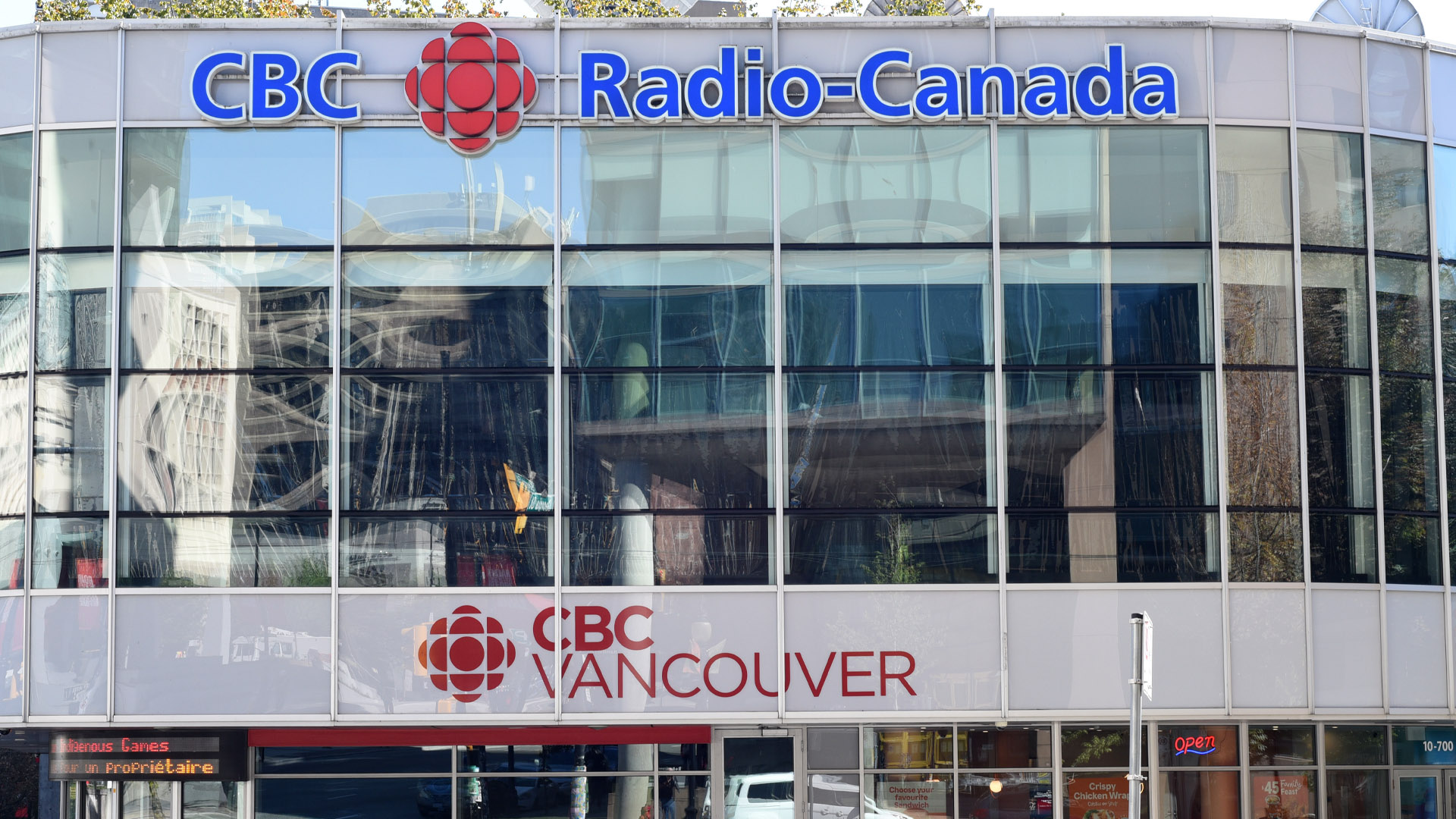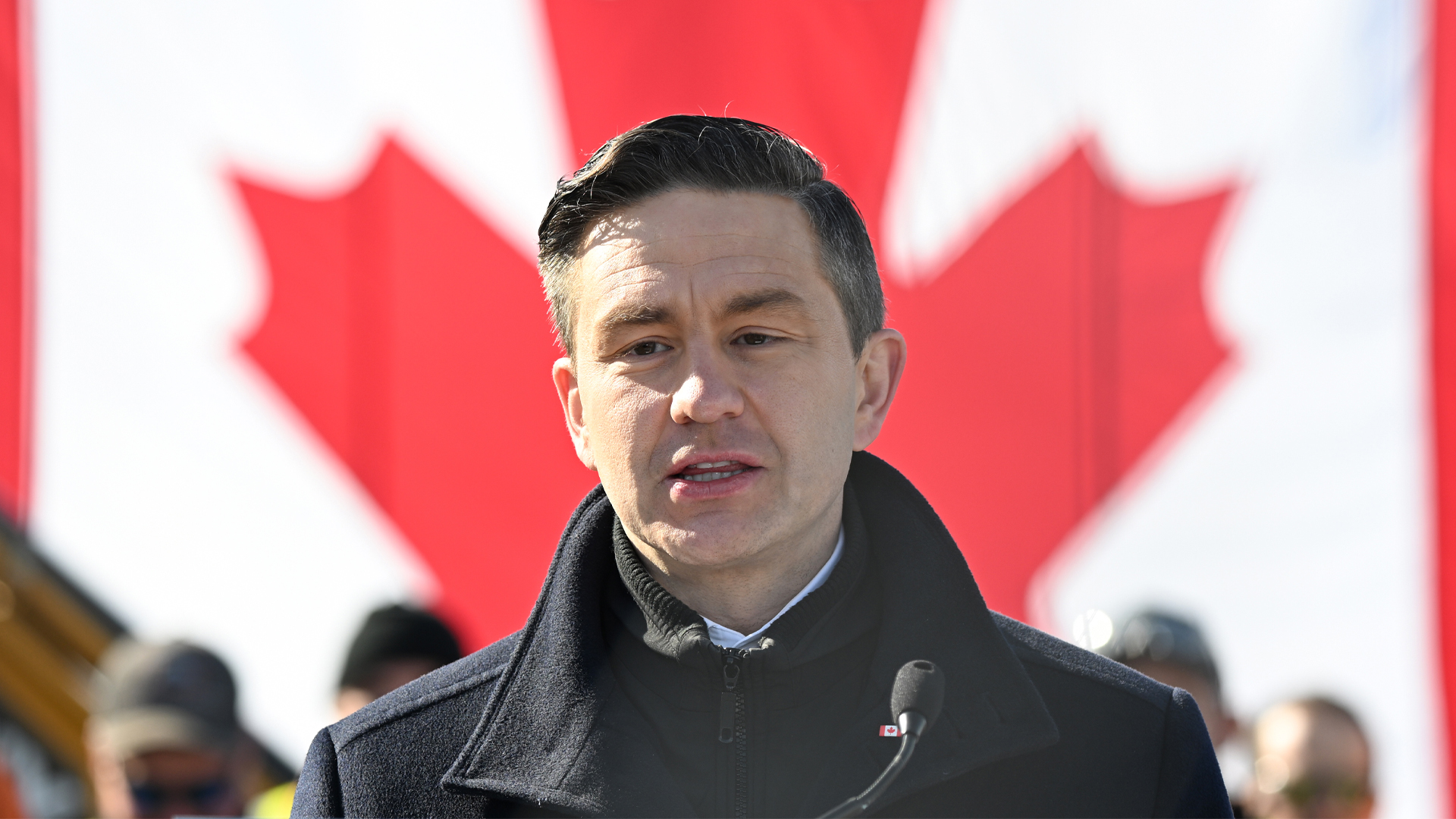(Version française disponible ici)
The gladiator stands staggered on the sandy floor of the Colosseum, waiting for the thumbs up or down. On federal election day, April 28, the CBC will discover its fate: live or die.
The Mark Carney Liberals have promised to defend the Canadian Broadcasting Corporation and even increase its funding.
On the other hand, Conservative leader Pierre Poilievre “can’t wait” to keep his promise to defund all English-language services of the public broadcaster as no longer needed. “The CBC provides opinions and coverage that are widely available in a competitive media marketplace,” states the CPC with confidence.
The Conservatives believe that Canadians, or at least English-speaking Canadians, enjoy a surfeit of news and cultural media without the assistance of state intervention. It is a rebuke to the long Canadian history of public broadcasting and cultural policy.
Since 1936, the year the CBC was created, federal cultural subsidies and the regulation of private broadcasters have all had one thing in common: the public-policy conviction that without this “tool kit” of government action, Canada will be overwhelmed by American news and culture.
The spirit of that policy is exemplified by Graham Spry’s famous aphorism, “it’s the state, or the United States.” The letter of the policy is enshrined in the long list of policy goals in the Broadcasting Act, the most fundamental being “cultural sovereignty.”
Ever since the balance of power in the Canadian conservative movement shifted westward and rightward to the Reform Party in the 1990s and the reconstituted Conservative Party in 2003, Canada’s cultural-policy tool kit has been a Liberal-only policy, grudgingly tolerated by the Harper Conservatives when they held government from 2006 to 2015.
Of all those public policies, the $1.4-billion public funding of the CBC has been the biggest stone in the Conservative shoe. Conservatives see a handsomely endowed public broadcaster headquartered in central Canada with, in their increasingly soured perspective, a news reporting bias against conservative issues and views.
Poilievre’s determination to defund the CBC is a strong departure from past Conservative Party leaders over the last decade.
Andrew Scheer and Erin O’Toole called for defunding or greatly diminishing the CBC. But Scheer backed off and O’Toole moderated at election time. As recently as the CPC policy convention in March 2021, delegates approved little more than a mandate review.
The CPC now, however, is unwavering.
Defunding the CBC has become a staple CPC policy, raising money for the party and enriching its voter database. The giant asterisk to the CPC platform is leaving Radio-Canada’s French-language services intact. Poilievre has promised defunding would have no impact on Radio-Canada.
But a standalone Radio-Canada funded by $600 million from federal coffers would be a sitting duck for English-Canadian voters. Both defenders and defunders of a vanquished English-language CBC would have little or no interest in maintaining French services. Poilievre’s promise won’t reassure French-language speakers or the Quebec political class.
In support of defunding, many conservative commentators list familiar criticisms of the public broadcaster: too mediocre, too woke, too left-wing, too competitive with private media for increasingly scarce advertising dollars, not competitive enough for television ratings, and just plain unnecessary in an age of abundant online content. Or perhaps the public funding that supports Canadian content via the CBC could be put to better use as direct cultural subsidies.
For its part, the CPC has offered no detailed policy principles to underpin its defunding platform. But the most penetrating analysis making the case for defunding comes from Peter Menzies, a past publisher of the Calgary Herald and a former vice-chair of the CRTC, the Canadian Radio-television and Telecommunications Commission.
Two years ago, Menzies co-authored the case for a smaller and reformed CBC. His ideas were not dissimilar to those of unabashed supporters of the CBC: get the broadcaster out of the advertising market, decentralize its operations and provide more regionally and ideologically diverse news content.
But in a paper published last month, Menzies has migrated to a new preferred option: defund the English-language services of the CBC, sparing for now the far North and the French-language services of Radio-Canada.

Under Menzies’s plan, CBC’s English-language services would be converted to a subscription service and privatized – if it survives at a $30-monthly subscription price. All public and private media would be de-subsidized but assisted by generous federal vouchers for news consumers.
It’s impossible to evaluate public broadcasting in isolation, away from the Canadian news ecosystem, Menzies points out. But he sees the financial precarity of that ecosystem as an argument against, not for, continuing public funding for the CBC.
To this end, he argues the CBC disadvantages private media by engaging in unfair competition for audiences and dwindling advertising dollars.
But Menzies’s plan to defund and de-subsidize hinges on a strong faith in the future prosperity of a struggling Canadian private media in an open market, still gasping for scarce advertising dollars.
It also hinges on the success of a robust federal media voucher that taxpayers could claim on news subscriptions in the absence of the CBC and a subsidized private media. Given that 80 per cent of Canadians do not pay for news, it’s a big policy gamble that federal vouchers will sustain paywalled local, regional and national content for casual news consumers, who are the vast majority of Canadians.
The key point is that Menzies deplores the current federal subsidies to news outlets as an existential threat to the independence of the press and liberal democracy. His dystopia is a news ecosystem dependent on governments that subsidize news outlets.
The media apocalypse looks entirely different for CBC supporters and Canadians who favour federal aid to news journalism. Their dystopia is triggered by a collapse of the Canadian news ecosystem, bereft of the CBC, bereft of the enterprise-sustaining ad revenue siphoned off to American online giants, and bereft of federal aid to private media.
There is a fear that if the CBC’s significant newsgathering capacity is eliminated, a fatally wounded mainstream media will be unable to provide a counterweight to right-wing opinion or news bias. It will be unable to neutralize misinformation and foreign interference in our news ecosystem.
Policy commentators can joust over which dystopia is more or less likely, or more or less dangerous. But to the extent that elections provide a public referendum on the question, the upcoming federal ballot may deliver that opportunity.
The Liberals support the CBC. The prime minister has adopted many of former heritage minister Pascale St-Onge’s recommendations for supporting a better-funded and stronger CBC, citing the public broadcaster’s key role in providing accurate news to a healthy ecosystem. A big part of the mandate would be to invest more in local news. The challenge is to find the money and figure out where to invest it without side-swiping private media competing in the same space.
Carney has hedged on St-Onge’s recommended increase of CBC’s annual funding from $32 per Canadian to as much as $62. He has promised a more modest $150-million increase to the $1.4-billion parliamentary grant, an 11-per-cent increase to $35.50 per Canadian. Further funding to close the gap with the lofty benchmarks of European nations will have to wait.
The truth of the matter is that with parliamentary funding divided 60/40 between CBC and Radio-Canada, the French-language services already meet European benchmarks, and the English services are much closer to the meagre funding provided by the U.S. Congress to the Corporation for Public Broadcasting.
Carney has not endorsed CBC’s exit from the advertising market in public-affairs programming, perhaps because the math doesn’t work. Increasing funding by $150 million is mostly cancelled out by eliminating a guesstimated $100 million in ad revenue attached to public-affairs programming. That’s a shame: going ad free would diminish competition with private media and would be popular with CBC audiences, who already enjoy an ad-free CBC radio.

Importantly, Carney has endorsed long-term funding being domiciled outside of the annual budget process, writing it into the Broadcasting Act. That will be a riff on the British system of an 11-year charter agreement between Parliament and BBC that establishes a quid pro quo of secure funding in exchange for performance and fulfillment of a public mandate.
A new report penned by Independent Senator Andrew Cardozo recommends a number of public-confidence measures useful in combating the cynicism or hostility directed at the CBC — currently expressed in the vocabulary of “lack of trust” or “bias.” For example, Cardozo suggests annual external audits of CBC news content, also recommended by Peter Menzies and former CBC executive Richard Stursberg.
On my blog MediaPolicy.ca, I have recommended moving CBC headquarters westward and convening regular “constituent assemblies” of ordinary CBC listeners and readers to pass judgment on the CBC’s programming.
Even if the CBC survives the April 28th election, it won’t be the end of Canadian handwringing over its role in media and liberal democracy.
The apple-pie policy objectives for the CBC written into the Broadcasting Act haven’t produced a Canadian consensus on its role, other than the CBC ought to be programing content that is different than private media while furthering our cultural sovereignty.
The latter policy priority has become top of mind at this time of national emergency precipitated by U.S. President Donald Trump’s threat to annex Canada by economic force.
Canadians will probably never stop haggling over the best kind of cultural content that the CBC ought to be programming. We will never agree on whether CBC News is biased. Just imagine if the CBC newsroom consciously pushed conservative issues and views. It would be savaged from all other quarters for doing so.
But a better CBC can pursue the public broadcaster’s honest vocation. Tell popular and authentic Canadian stories that resonate regionally and across the nation. Pursue fact-based news reporting and insightful analysis. Engage Canadians in a communal place. The CBC is our biggest and most consequential lever of public policy in media and culture and it must succeed if our cultural sovereignty is to be defended.









